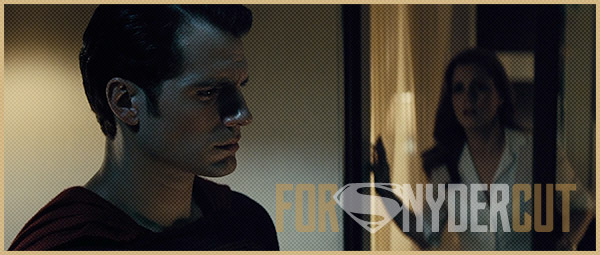
Misunderstood mythology of superheroes by Bea
“On @ZackSnyder ‘s birthday I just want to say that I lost my mother right before Man of Steel came out & that the last 5 yrs have been bearable for me almost entirely because of the work he did on MoS & BvS. The work he did on those films & the care he approached it w/ helped me rebuild myself on the other side of grief, & I hope if we can ever do the same for him he lets us know. @ZackSnyder thank you so much, I hope you’re having a beautiful day.” (16). “Before BvS came out, someone very close to me passed away. It was the single greatest calamity I have gone through. I have pretty much given up on life altogether. I had become very harsh and firm. I had let something for the first time affect me to the point where I forgot my own self. I remember walking out of Batman v Superman dazed, thinking more about what I may become if I kept going down the path I was going than I did about the movie itself. It had an incredible impact on me. It was the first part of my healing process and it gave me the motivation to get better as a person and get back to I really am” (written by Omer Kamal) (17).
The personal information I share with the permission from the authors.
Are movies in general (and BvS in particular) made for critics/journalists or for people who would connect with them to experience something unique, important, even life-changing? Was BvS made for the people I quoted (and other fans I know, who shared their experiences in discussions, like Fiona Zheng and Rebecca Johnson), or for critics/journalists who perceive it as having too little humanity or drama, a pretentious slugfest, a hot, steaming heap of trash, hollow and empty-headed as an action figure, vacuous, dumb as bricks, relentless downer, joyless slog, hapless story about superheroes missing their mommies etc.? For somebody who describes the dream sequences in BvS as “howlingly pretentious” (Joe Morgenstern, WSJ)? For people whose contempt, strong confirmation bias (it will suck!), and hatred (for the genre or the director) prevented them from connecting with the movie and fully experiencing it? You can’t experience a work of art if you watch it with your mind and heart closed like an oyster, but with a bunch of assumptions about what it should be. Was it made for people who are so full of contempt they think it shouldn’t exist at all? – ”It seems amazing that something as idiotic as Batman v Superman: Dawn of Justice could now even get beyond the pitching stage” (Camilla Long, Sunday Times (UK)), ”Ultimately, Batman v. Superman is a film with no real reason for being, other than to usher in the next round of DC Universe films, and to provide a bunch of explosions” (Abby Olcese, Sojourners), ”If there’s any justice, dawning or otherwise, at the multiplex, audiences will reject Zack Snyder’s lumbering, dead-on-arrival superhero mélange, a $250 million tombstone for a genre in dire need of a break” (Joshua Rothkopf, Time Out). If they got their wish, it would be a flop so the studio would not be able to make such a movie again.
Zack Snyder was right, when he posted on verotruesocial that ”powerful art can heal, bring awareness, and create change”. Contrary to the disdainful opinion of many critics, (”It’s tedious. Except when it’s laughable” Tricia Olszewski, Washington City Paper; ”To say that Superman v Batman: Dawn of Justice is a bad movie doesn’t go far enough” Devin Faraci, Birth.Movies.Death) BvS (as well as other Zack Snyder’s movies) is a powerful work of art – it healed, brought awareness and changed lives of many people. It can, in turn, help to make our world a better place to the extent of the impact of individual persons, because art challenges our notions and has potential to change us for the better. Kitsch (”something that appeals to popular or lowbrow taste and is often of poor quality” – Merriam-Webster Dictionary) doesn’t – it can give us pleasure or entertain, but it hasn’t the profound impact of art.
As I’ve already said, it’s a matter of perception and we are responsible for the way we experience art. It’s not only responsibility of the creator, it’s also our obligation as viewers. It’s described best by C. S. Lewis: ”The first demand any work of art makes upon us is surrender. Look. Listen. Receive. Get yourself out of the way. (There is no good asking first whether the work before you deserves such a surrender, for until you have surrendered you cannot possibly find out.)” (An Experiment in Criticism). The truth of this statement is evident if we compare the opinions/experiences of fans and critics. It’s obvious (from the reviews) that submitting to this movie was the last thing majority of critics were ready for. Quite the contrary, they projected their expectations, preconceived notions and assumptions onto the movie, transferred them into their reviews and reinforced cognitive bias of a substantial portion of the audience. It’s not surprising that almost entirety of BvS criticism is not about what this film is but what it isn’t (the same applies to other Zack Snyder movies). People who approached the movie driven by contempt for the genre, strong cognitive bias (often intense hatred), and tried to fit it into the box of their assumptions/expectations, saw exactly what they had primed themselves to see: a pretentious, laughable, idiotic, vacuous, incoherent mess. Something that has no reason of existing. People who loved BvS, on the other hand, surrendered completely to the movie and accepted it on its own terms, challenging (and overcoming) their own assumptions. I am not the only one who can admit that BvS wasn’t what we expected or even wanted, but it was definitely the movie we desperately needed.
